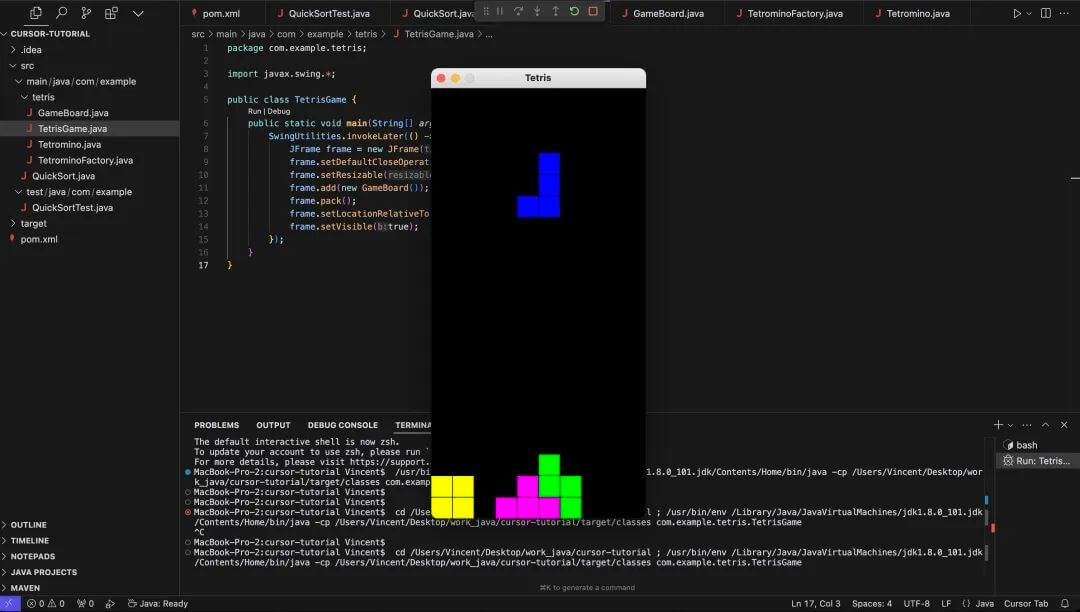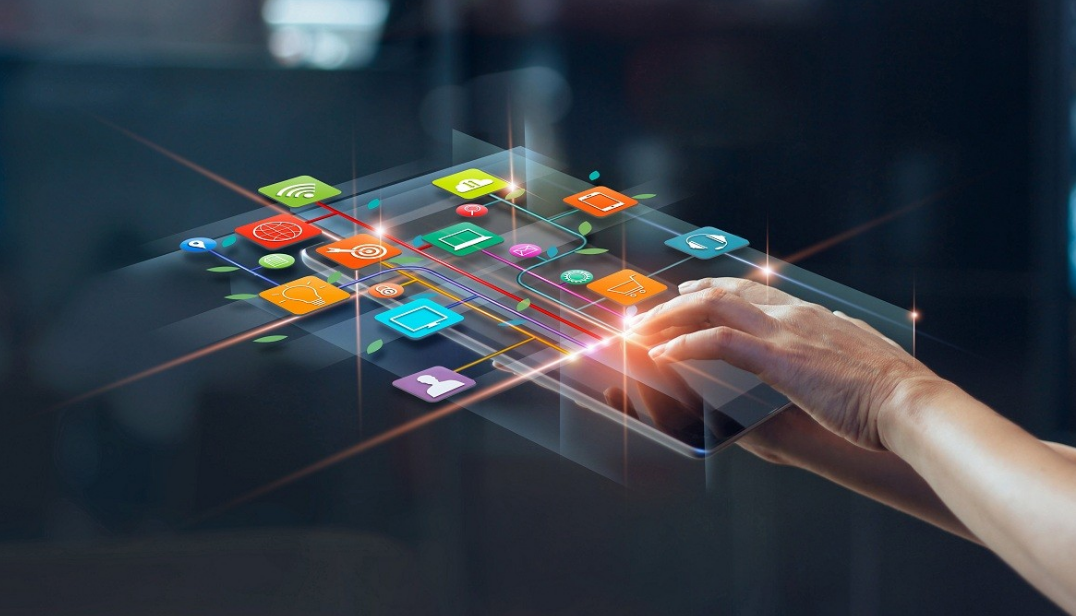Are you ready to step into the future? Get ready to uncover the latest advancements in technology and discover the cutting-edge insights that will shape tomorrow's world. In this article, we delve deep into the future of technology, unveiling the most innovative solutions and discussing the transformative impact they will have on our lives.
From artificial intelligence and virtual reality to smart cities and autonomous vehicles, the possibilities seem endless. With each passing day, technology continues to push the boundaries of what we thought was possible, revolutionizing industries and improving our everyday lives.
Join us as we explore the latest trends and breakthroughs in the world of tech, and learn how they will shape the way we live, work, and interact in the future. Whether you are a tech enthusiast or simply curious about the future, this article will provide you with a comprehensive overview of the exciting developments on the horizon.
Buckle up and get ready to embark on a thrilling journey into the world of tomorrow's technology. The future awaits, and it promises to be nothing short of extraordinary.
Emerging Trends in Technology
The landscape of technology is continuously evolving, driven by innovative ideas and the quest for solutions to complex problems. One of the most significant emerging trends is the rapid advancement of artificial intelligence (AI) and machine learning (ML). These technologies are becoming integral to various sectors, enhancing efficiency and enabling data-driven decision-making. Industries such as healthcare, finance, and retail are leveraging AI to improve customer experiences, optimize operations, and personalize services. As machine learning algorithms become more sophisticated, they are capable of analyzing vast amounts of data at unprecedented speeds, uncovering insights that were previously inaccessible.
Another notable trend is the proliferation of the Internet of Things (IoT), which connects devices and systems to collect and exchange data. Smart home devices, wearables, and connected vehicles are just a few examples of how IoT is transforming everyday life. This interconnectedness not only enhances convenience but also provides opportunities for smarter resource management and energy efficiency. As IoT technology matures, we can expect to see further integration into urban planning, agriculture, and manufacturing, paving the way for smarter cities and more sustainable practices.
Additionally, the rise of virtual reality (VR) and augmented reality (AR) is changing how we interact with digital content. These immersive technologies are finding applications in gaming, training, education, and even therapy. By creating engaging and interactive experiences, VR and AR have the potential to revolutionize traditional methods of learning and entertainment. As hardware becomes more affordable and accessible, we can anticipate widespread adoption, leading to new applications and innovations that enhance both personal and professional experiences.
Artificial Intelligence and Machine Learning
Artificial intelligence has made remarkable strides in recent years, evolving from basic algorithms to complex neural networks capable of mimicking human cognition. AI encompasses a variety of technologies, including natural language processing, computer vision, and robotics. One of the most potent applications of AI is in data analytics, where machine learning models can predict trends and behaviors based on historical data. For instance, businesses are utilizing predictive analytics to forecast sales, optimize supply chains, and enhance customer service by anticipating needs before they arise.
Moreover, AI is revolutionizing healthcare by enabling more accurate diagnoses, personalized medicine, and efficient patient management. Machine learning algorithms can analyze medical images, detect anomalies, and assist doctors in making informed decisions. The integration of AI in healthcare not only improves patient outcomes but also streamlines processes, reducing the burden on medical professionals. As AI continues to evolve, its potential to transform the healthcare landscape is immense, leading to more effective treatments and improved quality of life for patients.
However, the rise of AI and machine learning also raises significant ethical considerations. As these technologies become more integrated into society, concerns about privacy, bias, and accountability emerge. Ensuring that AI systems are transparent and fair is crucial to building trust and acceptance among users. Developing ethical frameworks and regulations around AI usage is essential, as we navigate the balance between innovation and responsibility in an increasingly automated world.
Internet of Things (IoT) and Connected Devices
The Internet of Things (IoT) is a game-changer in how we interact with technology and our environment. By connecting devices to the internet, IoT enables seamless communication and data exchange between them. This interconnectedness facilitates smarter living, as seen in smart homes equipped with devices that can be controlled remotely. From smart thermostats that optimize energy usage to security systems that offer real-time monitoring, IoT enhances convenience and improves our quality of life.
In the industrial sector, IoT is transforming manufacturing processes through automation and predictive maintenance. Connected machines can communicate their status, allowing companies to monitor performance and identify potential issues before they lead to costly downtime. This not only boosts productivity but also fosters a more sustainable approach to manufacturing, as resources are used more efficiently. The ability to collect and analyze data from connected devices creates opportunities for innovation and helps businesses adapt to changing market conditions.
Furthermore, the impact of IoT extends to smart cities, where data from various sources is harnessed to improve urban living. By integrating sensors and connectivity into infrastructure, cities can enhance public services such as transportation, waste management, and energy distribution. For example, smart traffic lights can optimize flow based on real-time data, reducing congestion and emissions. As cities become more interconnected, the potential for enhanced quality of life and sustainability grows, paving the way for a future where technology serves the needs of its citizens.
Virtual Reality (VR) and Augmented Reality (AR)
Virtual reality and augmented reality are at the forefront of technological innovation, offering immersive experiences that blend the digital and physical worlds. VR transports users to entirely simulated environments, allowing for experiences that range from gaming to virtual travel. In contrast, AR overlays digital information onto the real world, enhancing our interaction with our surroundings. These technologies are proving to be invaluable tools across various sectors, including education, healthcare, and entertainment.
In education, VR and AR are transforming traditional learning methods by providing interactive, hands-on experiences. For instance, students can explore historical sites, conduct virtual science experiments, or engage in realistic simulations that enhance understanding and retention. By immersing learners in engaging environments, these technologies cater to diverse learning styles and promote collaboration. As educational institutions adopt VR and AR, the potential to reshape how we learn and teach is significant.
The healthcare industry is also harnessing the power of VR and AR for training and therapy. Medical students can practice surgical procedures in a risk-free virtual environment, honing their skills before working with real patients. Additionally, AR can assist surgeons by providing critical information during procedures, improving precision and outcomes. Furthermore, VR is being utilized in therapeutic settings, helping patients confront phobias and manage pain through immersive experiences. As these technologies continue to evolve, their applications in healthcare and education will expand, offering new ways to enhance learning and treatment.
Despite the exciting potential of VR and AR, challenges remain in terms of accessibility and user experience. As hardware becomes more advanced and affordable, it is crucial to ensure that these technologies are inclusive and user-friendly. By addressing these challenges, we can maximize the benefits of virtual and augmented reality, paving the way for innovative applications that enrich our lives.
Blockchain Technology and Cryptocurrency
Blockchain technology has emerged as a revolutionary force, transforming industries by providing secure, transparent, and decentralized solutions. At its core, blockchain is a distributed ledger that records transactions across multiple computers, ensuring data integrity and security. This technology has gained significant traction in the financial sector, particularly with the rise of cryptocurrencies like Bitcoin and Ethereum. These digital currencies offer an alternative to traditional banking systems, enabling peer-to-peer transactions without intermediaries.
Beyond cryptocurrency, blockchain has numerous applications across various sectors. In supply chain management, for example, blockchain can enhance traceability and accountability by providing a transparent record of every transaction. This ensures that products can be traced back to their origin, mitigating issues like fraud and counterfeiting. Additionally, blockchain can streamline processes in industries such as healthcare, where patient records can be securely shared between providers while maintaining privacy and security.
However, the adoption of blockchain technology is not without challenges. Scalability, regulatory concerns, and energy consumption are significant hurdles that need to be addressed for widespread implementation. As the technology matures, ongoing research and development will likely lead to solutions that enhance blockchain’s efficiency and sustainability. The potential for blockchain to revolutionize how we conduct business, manage data, and interact with one another is immense, making it a critical area to watch in the coming years.
The Impact of 5G Technology on Innovation
The rollout of 5G technology is set to usher in a new era of connectivity, dramatically enhancing the speed and reliability of wireless communication. With significantly lower latency and higher bandwidth, 5G is poised to support a multitude of devices and applications that were previously limited by network constraints. This advancement will have a profound impact on various sectors, enabling innovations that were once thought impossible. From smart cities to autonomous vehicles, the possibilities are vast.
One of the key benefits of 5G technology is its capacity to enhance the Internet of Things (IoT). With faster and more reliable connections, billions of connected devices can communicate in real time, leading to more efficient systems. Smart cities will benefit from improved infrastructure, as traffic management and public services can be optimized through real-time data analysis. Additionally, industries such as agriculture will leverage 5G to implement precision farming techniques, utilizing data from connected sensors to maximize yield and minimize waste.
Moreover, the impact of 5G extends to entertainment and media, transforming how we consume content. With faster download speeds and lower latency, streaming services can deliver high-definition content seamlessly, and virtual reality experiences can become more immersive and accessible. As 5G technology continues to roll out globally, it will drive innovation across various sectors, creating new opportunities for businesses and enhancing the way we interact with technology.
Ethical Considerations in the Future of Technology
As technology continues to advance at an unprecedented pace, ethical considerations become increasingly important. The integration of AI, IoT, and other emerging technologies presents challenges related to privacy, security, and societal impact. For instance, the vast amounts of data collected by connected devices raise concerns about surveillance and data misuse. Ensuring that individuals' rights are protected while still harnessing the benefits of technology is a delicate balance that requires careful consideration.
Another pressing ethical challenge is the potential for bias in AI algorithms. Machine learning models are trained on historical data, which may contain inherent biases that can perpetuate discrimination. It is crucial for developers to recognize these biases and implement strategies to mitigate their impact. By fostering diversity in the data used to train AI systems and promoting transparency in algorithmic decision-making, we can work towards more equitable technological solutions.
Furthermore, the ethical implications of automation and job displacement must be acknowledged. As AI and robotics take over tasks traditionally performed by humans, there is a growing concern about job loss and economic inequality. Policymakers and industry leaders must collaborate to develop strategies that support workforce transition, ensuring that individuals have access to education and training for emerging roles in a technology-driven economy. By addressing these ethical considerations, we can navigate the complexities of the future of technology responsibly.
The Role of Big Data in Shaping the Future
Big data is at the heart of many technological advancements, providing valuable insights that inform decision-making and drive innovation. As organizations collect and analyze vast amounts of data, they can uncover patterns and trends that were previously hidden. This data-driven approach is transforming industries, from marketing to healthcare, by enabling more effective strategies and personalized solutions. The ability to harness big data empowers businesses to stay competitive and responsive to changing consumer needs.
In healthcare, big data analytics is revolutionizing patient care by enabling predictive modeling and personalized treatment plans. By analyzing data from electronic health records, wearable devices, and genomics, healthcare providers can make informed decisions that improve patient outcomes. Moreover, big data plays a crucial role in public health by identifying trends and outbreaks, allowing for proactive measures to be taken. As the healthcare industry continues to embrace big data, the potential for improved health outcomes and more efficient care is significant.
However, the use of big data also raises concerns regarding privacy and security. As organizations collect more personal information, the risk of data breaches and misuse increases. It is essential for companies to implement robust data governance practices and prioritize transparency in their data collection and usage. By establishing ethical guidelines and adhering to regulations, organizations can build trust with consumers while leveraging the power of big data to drive innovation and improve services.
Conclusion: Embracing the Possibilities of Tomorrow
The future of technology holds immense promise, with groundbreaking advancements poised to transform how we live, work, and interact. From the integration of artificial intelligence and machine learning to the interconnectedness of IoT devices, the potential for innovation is vast. However, as we embrace these technological possibilities, it is crucial to remain mindful of the ethical considerations and challenges that accompany them.
By fostering a culture of responsibility and inclusivity in technology development, we can ensure that the benefits of innovation are accessible to all. Collaboration between industry leaders, policymakers, and consumers will be essential in navigating the complexities of the digital age. As we step into this new era, we must remain vigilant and proactive in addressing the challenges that arise, ensuring that technology serves the greater good.
As we look to the future, the possibilities are truly extraordinary. By harnessing the power of technology, we can create a world that is more connected, efficient, and equitable. The journey into tomorrow's technology is just beginning, and it is up to us to shape it in a way that enhances our lives and the world around us. Embracing the future with curiosity and responsibility will lead us to a brighter, more innovative tomorrow.



